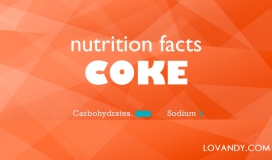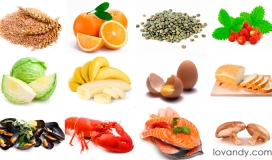Coconut water is known as a nice beverage that grants you a lot of vitamins and health benefits. However, is it as good as it is believed to be? Let us learn more about it!
General Nutrition Facts of Coconut Water
Coconut water is a liquid endosperm of young fruits of coconut palms that grow in Thailand, Malaysia, Brazil and in some other tropical countries. The composition of this drink includes numerous vitamins, minerals, antioxidants and amino acids, which make it very useful and nutritious.
Notice that coconut water is not the same as coconut milk. Water is collected straight from the nut and quickly packed, while milk requires some processing.
The main value of coconut water is in a set of natural electrolytes. In the human body, they are responsible for the osmolarity of the blood plasma, with the optimal balance of electrolytes, the best level of extracellular and intracellular fluid is maintained. Humanly speaking, with enough electrolytes your cells receive enough water (therefore, vitamins) for normal activity.
The highest nutritional value is in tender (young) coconuts. They tend to contain 30-40% more vitamins than mature ones.
That is why most manufacturers use these. There are even special sorts of coconuts that remain green for a longer time so that it would be possible to collect the liquid while it is the most beneficial.
Find out more about coconut oil:
For example, Zico sells coconut water in bottles, as well as in packs. It is however better to use the second variant. This way the beverage is more likely not to contain preservatives. The same thing is true about Vita’s coconut water.
Vitamins and Minerals in Coconut Water (Fe, Zn, Mg, Ca)
There are many vitamins of B group in the content of coconut water. They help your skin remain young, as well as nails and hair stay strong. Moreover, the composition of this group in coconut water is good for nervous system.
Talking about minerals, iron, zinc, magnesium, calcium and potassium are all here in nice amounts. They help new cells form and live, therefore affecting blood circulation, immune system and hormonal comfort.
Studies have shown that cellulose, which is contained in coconut water, is similar to human blood plasma. Therefore, coconut water with pulp is incredibly useful for athletes and those who is on a diet. In addition, potassium found in coconut water, acts as a natural remedy to reduce blood pressure.
Even though there is no vitamin E or D in coconut water, it has a pretty big amount of vitamin C, which is known to be extremely beneficial.

Protein Content in Coconut Water – 1,5 g per 100 g
There are not many proteins in the composition of coconut water. However, it contains all eight amino acids that are needed for your body. Therefore, coconut water is a nice beverage for drinking before and after physical exercises. It can help your muscles get everything they need to grow.
It is rather popular to use coconut water in protein shakes. Perhaps, it does not contain as much protein as milk does, but the quality and uniqueness of coconut’s one is indisputable.
How Many Carbs are There in Coconut Water?
One cup of coconut water contains less than 7% of carbohydrates daily intake. This means drinking it can do no harm to your figure. Moreover, it contains a lot of useful fatty acids. Therefore, coconut water suppresses hunger. That is why it is used in many diets as an additional product.
Talking about fats, there are slightly less than 1% of daily norm.
That is also a reason why coconut water is popular amongst Hollywood actors and models. For example, Victoria Beckham prefers drinking it as a replacement of a regular water.
Sugar in Coconut Water
Coconut water contains more than 10% of your daily norm of sugar per 100 grams. Should you be worried about this number? It depends on what is ok for you and what is not.
If you are on a diet, there is no harm in a glass of coconut water. Sugars in its content are natural and will not transform into fats.
By the way, it is acceptable to drink coconut water during a diet, if you want something sweet.
If you have diabetes, you would better not drink pure coconut water. Luckily, many brands produce sugar-free one. It contains 0% of sugar, so you can drink as much as you want. For the only contraindication to consuming water of coconuts is allergy.
Nutrition Label of Coconut Water (Glycemic Index = 3)
| Name of nutrition component | Content per 1 cup | Content per 100 g | Percent of daily intake* |
|---|---|---|---|
| Proteins | 1.7 g | 0.7 g | 1.5% |
| Fats | 0.5 g | 0.2 g | 0.7% |
| Carbohydrates | 8.9 g | 3.7 g | 2.8% |
| Fiber | 2.6 g | 1.1 g | 4.4% |
| Sugars | 6.2 g | 2.6 g | 10.4% |
| Calcium | 58 mg | 24 mg | 2.4% |
| Iron | 696 µg | 290 µg | 1.6% |
| Magnesium | 60 mg | 25 mg | 7.8% |
| Phosphorus | 48 mg | 20 mg | 2.9% |
| Potassium | 600 mg | 250 mg | 5.3% |
| Sodium | 252 mg | 105 mg | 4.6% |
| Zinc | 240 µg | 100 µg | 1.3% |
| Vitamin A | – | – | – |
| Vitamin B1 | 72 µg | 30 µg | 2.7% |
| Vitamin B2 | 137 µg | 57 µg | 5.2% |
| Vitamin B3 (PP) | 192 µg | 80 µg | 0.6% |
| Vitamin B6 | 77 µg | 32 µg | 2.5% |
| Vitamin B9 | 7 µg | 3 µg | 0.8% |
| Vitamin B12 | – | – | – |
| Vitamin C | 5.8 mg | 2.4 mg | 3.2% |
| Fatty acids, saturated | 422 mg | 176 mg | as low as possible |
| Fatty acids, monounsaturated | 19 mg | 8 mg | less than 0.05% |
| Fatty acids, polyunsaturated | 5 mg | 2 mg | less than 0.05% |
| Cholesterol | – | – | – |
* According to USDA
Coconut water is truly a beneficial beverage. Its nutritional content is absolutely unique, and there are no contraindications of drinking it. Therefore, you can even replace regular water with it, as long as it fits your diet. Tell us how do you like coconut water and how often do you drink it!













